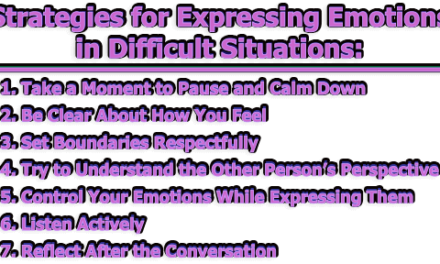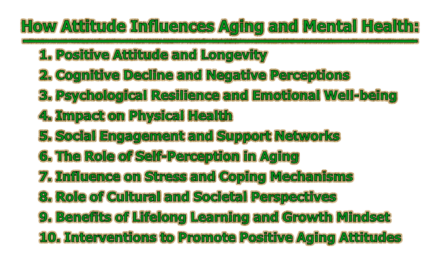University life marks a critical period in young adults’ lives, characterized by newfound independence, personal growth, and intellectual exploration. However, this phase can also be fraught with challenges that contribute to stress, anxiety, depression, and other mental health issues. The pressures of academics, social interactions, financial responsibilities, and future uncertainties can collectively impact students’ overall well-being. In the rest of this article, we will explore the factors influencing mental health and well-being of university students, the consequences of poor mental health, and strategies that educational institutions and individuals can employ to promote a healthier university experience.
Factors Influencing Mental Health and Well-Being of University Students:
The mental health and well-being of university students are subject to a myriad of influences, resulting from a combination of internal and external factors. These influences significantly impact students’ ability to thrive academically, socially, and emotionally during their university years. Here, we delve deeply into the various factors that shape the mental health landscape of university students:
1. Academic Pressure: The pursuit of higher education often brings with it a heightened level of academic demands. Students are expected to manage complex coursework, prepare for exams, and meet deadlines consistently. This pressure to excel academically can lead to elevated stress levels, anxiety, and feelings of inadequacy. The weight of maintaining high grades to secure scholarships, internships, or future career opportunities further exacerbates the stress.
2. Transition and Change: Leaving the familiar environment of home and entering a new university setting can be both exciting and overwhelming. The abrupt shift from the comfort of family and established routines to an unfamiliar place can result in feelings of disorientation and homesickness. Coping with the adjustments required for this transition, including managing daily tasks, building new relationships, and adapting to academic expectations, can be emotionally taxing.
3. Social Isolation: The university experience often requires students to forge new social connections. For those who struggle with social interactions or feelings of shyness, this process can be particularly challenging. The fear of rejection, the pressure to fit in, and the desire to establish meaningful relationships can contribute to feelings of isolation and loneliness. This isolation can take a toll on mental well-being.
4. Financial Stress: The financial aspect of university life can create significant stress for students. Tuition fees, accommodation costs, textbooks, and daily expenses can place a heavy financial burden. Many students find themselves juggling part-time jobs with their studies to make ends meet, resulting in fatigue and stress. The fear of not being able to afford their education or future prospects can significantly impact mental health.
5. Performance Comparison: The advent of social media and constant connectivity have ushered in an era of pervasive comparison. Students are frequently exposed to curated images of their peers’ accomplishments and successes, fostering unrealistic standards for their own achievements. This constant comparison can lead to a phenomenon known as “social comparison anxiety,” where individuals feel inadequate and anxious about their own progress and achievements.
6. Uncertain Future: University students often face the daunting task of making life-altering decisions, such as selecting a major and planning for post-graduation life. The pressure to choose the “right” path that aligns with future career aspirations can be overwhelming. The uncertainty surrounding job prospects, changing industries, and evolving career paths can contribute to anxiety about the future and the ability to achieve one’s goals.
7. Cultural and Diversity Factors: For international students or those from culturally diverse backgrounds, the experience of adjusting to a new culture and societal norms can present unique challenges. Language barriers, cultural differences, and a sense of isolation from their home environment can contribute to feelings of alienation and stress.
8. Relationship Issues: Maintaining healthy relationships while navigating the demands of university can be intricate. Romantic relationships, friendships, and family dynamics all play a role in shaping students’ mental well-being. Conflicts, breakups, or strained relationships can lead to emotional distress and impact academic performance.
9. Lack of Sleep and Poor Lifestyle Habits: Irregular sleep patterns, inadequate physical activity, and an unbalanced diet can negatively affect mental health. Sleep deprivation, in particular, impairs cognitive functioning, exacerbates stress, and increases vulnerability to mood disorders like anxiety and depression.
10. Lack of Coping Skills: Effective coping mechanisms are essential for managing stress and challenges. Students who lack these skills may resort to unhealthy coping strategies such as substance abuse, procrastination, or social withdrawal, which can further deteriorate mental well-being.
11. Stigma Around Mental Health: Despite progress in destigmatizing mental health issues, stigma persists. Many students are hesitant to seek help due to fears of judgment, social repercussions, or concerns about being labeled as weak. This reluctance to seek support can delay necessary interventions and prevent individuals from receiving the assistance they need.
12. Pressure to Excel in Extracurricular Activities: Participation in extracurricular activities is often encouraged for personal growth and skill development. However, the pressure to excel in multiple areas simultaneously—academics, extracurriculars, part-time jobs—can lead to burnout. The pursuit of an impressive resume can overshadow the importance of mental well-being.
Consequences of Poor Mental Health Among University Students:
The mental well-being of university students plays a pivotal role in shaping their overall experience and success. The consequences of poor mental health are extensive and can permeate various aspects of a student’s life, impacting not only their academic performance but also their physical health, relationships, and long-term prospects. Here, we discuss the complicated consequences that arise from poor mental health among university students:
a. Academic Impairment: Poor mental health has a direct and detrimental impact on academic performance. Students grappling with anxiety, depression, or other mental health challenges often find it difficult to concentrate, retain information, and engage with their coursework effectively. The cognitive impairments associated with poor mental health can lead to reduced productivity, missed deadlines, and ultimately, lower grades. This academic underachievement can create a cycle of stress and self-doubt, further exacerbating existing mental health issues.
b. Physical Health Complications: The connection between mental and physical health is intricate. Chronic stress and anxiety, common consequences of poor mental health, can manifest physically in the form of headaches, gastrointestinal problems, weakened immune function, and even cardiovascular issues. Moreover, students struggling with their mental health may neglect self-care practices such as proper nutrition, exercise, and sleep, which can exacerbate their physical health problems.
c. Substance Abuse and Self-Medication: In an attempt to cope with emotional distress, some students turn to substance abuse or self-medication. Alcohol, drugs, and excessive caffeine consumption are common methods used to temporarily alleviate the symptoms of anxiety or depression. However, relying on these substances as a coping mechanism can lead to dependency, addiction, and a worsening of mental health symptoms over time.
d. Social Withdrawal and Isolation: Poor mental health often prompts individuals to withdraw from social interactions, isolating themselves from friends, family, and peers. This self-imposed isolation can intensify feelings of loneliness and exacerbate existing mental health issues. The lack of meaningful social connections can hinder recovery and perpetuate emotional distress.
e. Impact on Relationships: Mental health struggles can strain relationships at various levels. Students may find it challenging to maintain healthy connections with friends, family members, and romantic partners. Mood fluctuations, communication breakdowns, and emotional distance can lead to misunderstandings and conflicts, further contributing to the deterioration of both mental well-being and relationships.
f. Long-Term Academic and Career Consequences: Persistently poor mental health during university years can have enduring academic and career repercussions. Lower grades, a lack of engagement in extracurricular activities or internships, and an inability to fully participate in educational opportunities can limit the possibilities for scholarships, graduate school admissions, and job placements. This can impact a student’s long-term prospects and hinder their ability to achieve their goals.
g. Impaired Cognitive Functioning: Mental health challenges can lead to impaired cognitive functioning. Students may experience difficulties in memory recall, problem-solving skills, and decision-making abilities. This impairment can affect not only their academic performance but also their capacity to manage daily tasks and make informed life choices.
h. Diminished Self-Esteem and Self-Worth: Individuals grappling with poor mental health often experience diminished self-esteem and self-worth. Negative self-perception and internalization of critical thoughts can lead to feelings of inadequacy and worthlessness. These emotions can intensify the cycle of poor mental health, hindering a student’s ability to break free from its grip.
i. Increased Risk of Mental Disorders: Untreated mental health issues during university can escalate the risk of developing more severe mental disorders later in life. Conditions such as major depressive disorder, generalized anxiety disorder, and bipolar disorder can become chronic if not addressed early. Early intervention and support are crucial to preventing the progression of these conditions.
j. Suicidal Ideation and Self-Harm: In severe cases, poor mental health can lead to thoughts of suicide or self-harm. Students overwhelmed by emotional pain may contemplate ending their lives or resort to self-destructive behaviors as a way to cope. Timely intervention and access to mental health resources are vital to prevent such extreme outcomes.
k. Reduced Engagement in Campus Life: Students struggling with poor mental health often disengage from campus activities, clubs, and events. This withdrawal from extracurricular engagement deprives students of opportunities for personal growth, skill development, and social connections that contribute to a well-rounded university experience.
Promoting Mental Health and Well-Being Among University Students:
In response to the growing recognition of the significance of mental health and well-being among university students, a concerted effort is being made to prioritize and enhance support systems. Here, we will delve into the multifaceted strategies and initiatives that aim to foster mental health and well-being among university students in greater detail:
i. University Support Services: Universities are establishing dedicated mental health support services to cater to the diverse needs of their student populations. These services often encompass counseling centers staffed with licensed professionals. Here, students can engage in one-on-one therapy sessions, group therapy, and workshops that provide coping strategies and emotional support.
ii. Reducing Stigma and Raising Awareness: To destigmatize mental health challenges, universities are implementing awareness campaigns that emphasize the importance of seeking help. These campaigns challenge stereotypes, share personal stories of resilience, and promote conversations around mental health. Educational sessions on campus, including workshops and seminars, further increase understanding and empathy.
iii. Life Skills Programs: Incorporating life skills programs into the curriculum empowers students with practical tools to manage the demands of university life. These programs cover stress management techniques, effective communication skills, time management, and emotional regulation. By equipping students with these skills, universities enable them to navigate challenges more effectively.
iv. Physical Well-Being Initiatives: Recognizing the interconnectedness of physical and mental health, universities promote physical well-being. They offer access to fitness facilities, organize wellness events, and provide resources on maintaining a healthy lifestyle. Yoga, meditation, and mindfulness programs help students manage stress and enhance their overall well-being.
v. Fostering Social Connections: Universities are creating platforms for students to connect and engage socially. This includes the establishment of student clubs, interest groups, and peer mentorship programs. These initiatives encourage social interaction, reduce feelings of isolation, and foster a sense of belonging in the university community.
vi. Flexible Academics: To alleviate the pressure associated with academic performance, universities are introducing flexibility in their academic policies. Pass/fail grading systems, extensions for assignments, and the acknowledgment of mental health days provide students with the space they need to manage their mental well-being without compromising their education.
vii. Early Intervention: Universities are training faculty and staff to identify signs of distress in students. This proactive approach ensures that students in need receive timely support. Early intervention can prevent the escalation of mental health issues and promote better academic and personal outcomes.
viii. Telehealth Services: Incorporating telehealth services expands access to mental health support. Virtual therapy sessions allow students to receive counseling remotely, addressing issues such as time constraints, transportation challenges, or concerns about stigma associated with seeking help.
ix. Creating Safe Spaces: Designated safe spaces on campus provide students with a retreat for relaxation and reflection. These areas offer privacy, comfort, and the opportunity to decompress during busy days. Such spaces can also host support group meetings and mindfulness sessions.
x. Peer Support Programs: Peer support programs connect students who have faced similar challenges. These initiatives offer a platform for sharing experiences, coping strategies, and encouragement. Peer mentors provide valuable insights and serve as relatable role models.
xi. Mindfulness and Well-Being Courses: Universities are integrating courses that focus on mindfulness, stress reduction, and overall well-being. These courses teach students practical techniques to manage stress, anxiety, and negative thought patterns. The skills acquired can benefit them beyond their university years.
xii. Collaboration with Mental Health Organizations: Universities are forging partnerships with external mental health organizations to enhance their services. Workshops, seminars, and resources provided by these organizations complement the university’s efforts and provide additional avenues for support.
In conclusion, the mental health and well-being of university students are crucial aspects of their overall development and success. By acknowledging the factors that influence mental health, understanding the consequences of poor mental health, and implementing strategies to promote well-being, educational institutions and individuals can contribute to a healthier and more positive university experience. It is imperative that universities prioritize mental health support and cultivate an environment where students feel empowered to seek help and navigate the challenges of higher education.
Frequently Asked Questions [FAQs]:
Why is mental health important for university students?
Mental health is crucial for university students as it affects their academic performance, emotional well-being, and overall quality of life. Good mental health supports effective learning, social engagement, and personal development.
What are common mental health challenges faced by university students?
Common challenges include anxiety, depression, stress, loneliness, and academic pressure. These challenges can impact students’ ability to manage their studies and maintain healthy relationships.
How can universities support students’ mental health?
Universities can offer counseling services, mental health awareness campaigns, life skills workshops, physical well-being initiatives, and flexible academic policies to support students’ mental health needs.
What strategies can students use to manage stress during university?
Students can practice time management, engage in physical activity, practice relaxation techniques like mindfulness and deep breathing, seek social support, and utilize campus resources for counseling.
How can peers and friends support a fellow student’s mental health?
Friends can listen without judgment, encourage seeking professional help if needed, invite their friend to social activities, and offer emotional support during challenging times.
What is the role of families in supporting their university-going children’s mental health?
Families can maintain open communication, validate their children’s feelings, provide emotional support, and encourage seeking help from on-campus resources if necessary.
Are there online resources for university students to access mental health support?
Yes, many universities provide online resources, such as informational websites, self-help tools, and access to virtual counseling sessions, to support students’ mental health remotely.
How can universities address the stigma surrounding mental health?
Universities can conduct anti-stigma campaigns, incorporate mental health education into curricula, and encourage open discussions about mental health to normalize seeking help.
What is the impact of COVID-19 on university students’ mental health?
The pandemic has increased stress and uncertainty among university students, leading to heightened mental health challenges. Isolation, disruption of routines, and concerns about health and future plans have contributed to this impact.
What should students do if they suspect they’re experiencing a mental health issue?
Students should reach out to their university’s counseling center, a mental health professional, or a trusted adult. Early intervention and seeking help are vital for managing mental health concerns.
How can universities promote a culture of well-being on campus?
Universities can create supportive environments by integrating well-being into campus policies, offering a variety of mental health resources, and encouraging a sense of community and connection among students.
References:
- Auerbach, R. P., Alonso, J., Axinn, W. G., Cuijpers, P., Ebert, D. D., Green, J. G., … & Bruffaerts, R. (2016). Mental disorders among college students in the World Health Organization World Mental Health Surveys. Psychological Medicine, 46(14), 2955-2970.
- Eisenberg, D., Hunt, J., & Speer, N. (2013). Mental health in American colleges and universities: Variation across student subgroups and across campuses. The Journal of Nervous and Mental Disease, 201(1), 60-67.
- Lipson, S. K., Lattie, E. G., Eisenberg, D., & Bauer, M. S. (2019). Variation in factors associated with active and passive suicidal ideation by survey time of semester among college students. JAMA Network Open, 2(12), e1918710.
- Stallman, H. M. (2010). Psychological distress in university students: A comparison with general population data. Australian Psychologist, 45(4), 249-257.
- Student Minds. (2018). The Impact of Student Life on Mental Health.
- World Health Organization. (2017). Depression and Other Common Mental Disorders: Global Health Estimates.
- National Alliance on Mental Illness (NAMI). (2021). College Students Speak: A Survey Report on Mental Health.
- American College Health Association. (2020). National College Health Assessment II: Undergraduate Reference Group Executive Summary Fall 2020.

Library Lecturer at Nurul Amin Degree College










